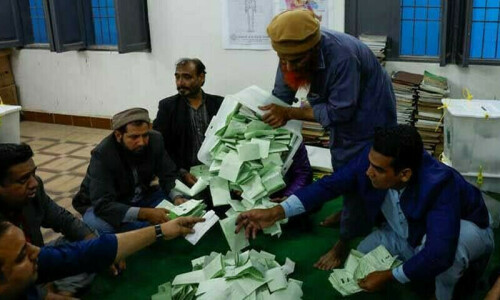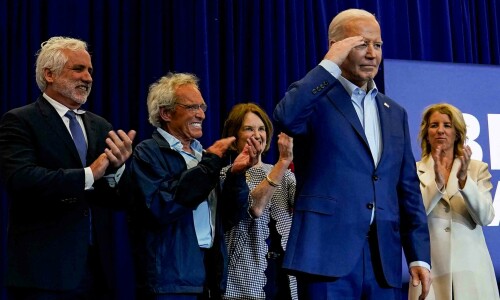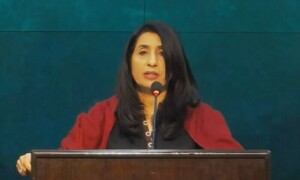KARACHI, Nov 4: The creditor banks would give at least 14 days notice to the alleged defaulters of consumer loans and their recovery teams would strictly adhere to law and seek recovery without harassing the debtors or members of their families, according to ‘policy guidelines’ formulated by the State Bank of Pakistan and submitted to the Sindh High Court by SBP counsel Iqbal Haider on Tuesday.
The court had asked the SBP to lay down a uniform policy with respect to loan defaults for guidance of commercial banks and other financial institutions. In petitions moved by trader Anwar Mahmood and other alleged defaulters, it called for adherence to the rules of law in recovery of bad debts and introduction of mediation, reconciliation and alternate dispute resolution devices.
The petitioners had alleged intimidation, humiliation, threats and other unlawful conduct on the part of the recovery squads hired by the scheduled banks. They said the teams used abusive language against them and members of their families in the presence of their neighbours. Threats were also made on phone and cars purchased on loans were snatched without notice.
The petitions came up before Justices Khilji Arif Hussain and Dr Qamaruddin Bohra but the hearing was adjourned to Nov 7 due to the absence of the lead counsel for the petitioners, Rasheed A. Razvi. The SBP document was taken on record.
Titled the ‘fair debt collection guidelines’, the SBP instructions are applicable to the various kinds of consumer loans, including credit cards and housing, auto and personal loans, extended by banks and other financial institutions. The guidelines say:
1. Before proceeding for debt collection/recovery from their customers/borrowers, the banks and other financial institutions shall furnish them all information relating to the state of their accounts. At least a 14 days’ notice shall be served on the customer through a letter or SMS advising him to make the outstanding payment before a visit to his/her residence or business premises ‘in a lawful manner to negotiate recovery’. Advance notice shall be given when a bank ‘picks up the payment’ and the payment shall be duly recorded.
2. Banks and institutions shall ensure that (a) customers are not contacted at an inconvenient time (b) proper disclosure of identity, name of the bank and the purpose of call is duly intimated and (c) only lawful and acceptable business language and professional conduct is adopted in establishing such contact.
3. Banks shall also ensure that (a) collection calls are properly recorded (b) customers are contacted at the given address/phone numbers and if they are not available, at alternate address/number obtained through collection efforts (c) a record of ‘visit reports’ shall be maintained for at least six months and (d) collection staff do not harass a customer’s family. (Necessary information could, however, be obtained from family/friends/third party if a borrower is not in contact for 30 days after the first missed payment).4. Banks shall give 14 days’ notice before repossessing the leased vehicle on breach of agreement/ default and the recovery agencies employed by them shall allow the customer to take out their valuables/ goods from the vehicle.
5. The recovery staff should ensure that the personal data of customers is not transferred or used without their prior permission and any information provided to them is properly documented.
6. The recovery agencies employed by the banks should be enrolled with the Pakistan Banks Association. The PBA is being advised to develop a criterion for enrolment keeping in view the guidelines.
To effectively control the recovery agencies and staff, the banks and financial institutions have also been advised to (a) formulate a code of conduct for them (b) introduce a well-defined mechanism for addressing complaints against the recovery staff (c) undertake a periodic review of the recovery procedures/ mechanism for improvement in line with the law and market practices (d) engage suitably-qualified staff for recovery and provide them training and (e) regularly monitor the working of the collection agencies/ staff.
Advocate Iqbal Haider told the court that the guidelines were in addition to and not in derogation of the relevant laws and rules. The State Bank would check compliance during the course of inspection and strict action would be taken against the bank/ financial institution not complying with the guidelines, the SBP counsel said.















































Dear visitor, the comments section is undergoing an overhaul and will return soon.